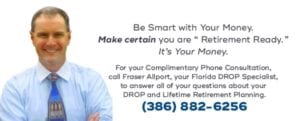Half of Retirees say that they wish they’d budgeted more for these expenses
You’re about as likely to guess how much money you’ll need for retirement as you are to predict exactly how long you’ll live. Yet in order to live comfortably in your senior years, you have to come up with estimates for both. You can generate an idea using the housing, food, insurance, and travel costs in your current budget, but what about things like medical emergencies, home repairs, and car breakdowns ?
3 THINGS TO DO IMMEDIATELY
IF YOU HAVE NO RETIREMENT SAVINGS
You need to budget something for these expenses as well, but people often underestimate how much they’ll need. Approximately 56% of retirees said they wish they’d budgeted more for unplanned expenses, according to an Edward Jones survey. So how do you know how much you actually need ? Let’s take a look.
Retirees need an Emergency Fund
Everyone should have an emergency fund to help cover unexpected expenses, like those mentioned above, so they don’t have to take on debt or ruin their credit. Conventional advice for working adults is to save three to six months’ worth of income, but retirees will need a lot more than that.
It’s tricky to pinpoint exactly how much you need because you don’t know how many emergencies will arise in retirement or how much they’ll cost. Saving six to 12 months of your retirement living expenses is a good starting point, but some people may feel more secure saving a couple years of living expenses for emergencies. It’s up to you to decide what you’re comfortable with.
4 RETIREMENT PLANNING STRATEGIES TO LEAN ON IN UNCERTAIN TIMES
Just remember emergency funds are for actual unforeseen expenses, not ones you can budget for. If you’re nearing retirement and know the roof on your home will need replacing soon, you should include the cost of the new roof in your retirement budget separately, rather than drawing upon your emergency fund to cover these costs.
How to reduce your unplanned expenses
Maintaining adequate insurance coverage throughout your retirement can help reduce your out-of-pocket costs in the event
of an emergency. Medicare will cover a lot of your retirement healthcare costs once you turn 65, but if you retire before this, you’ll need to purchase your own health insurance or make sure you’re covered under a spouse’s policy.
You may also wish to purchase supplemental insurance coverage to cover what Medicare doesn’t. This could mean buying a Medicare supplement plan or a Medicare Advantage plan, also known as Medicare Part C plan. Medicare Advantage plans cover everything original Medicare covers, as well as some things it doesn’t. You could also consider vision and dental discount plans, which are not insurance but lower your out-of-pocket costs when you visit your dentist or eye doctor.
RETIRING SOON ? ANSWER THESE 3 QUESTIONS TO DECIDE WHETHER TO RELOCATE
You should have appropriate auto and home or renters insurance as well. Life insurance or long-term care insurance is also worth considering if you believe there’s a chance you could one day require long-term care. This can exhaust even the largest emergency funds, so a long-term care policy or a life insurance policy with a long-term care rider can help you get the care you need without depleting your savings too quickly.
All these insurance policies will bring their own premiums, deductibles, and possibly copays, but these expenses are a little more predictable than what you could owe if you had to pay for all of your unplanned expenses out of pocket.
You always need a Plan B backup plan
Regardless of how great your insurance is or how large your emergency fund is, you need a backup plan for what you’ll do if you find yourself draining your retirement savings more quickly than you’d originally anticipated. Cutting your expenses may help make up for some of the shortfall, but this might not always be possible.
Returning to work, either part- or full-time, is another option if you’re still able to work. You don’t have to do what you did before. You could choose something that’s more in line with your own interests or start a side hustle that requires little work from you at all, like renting out an extra property, a parking space, or a storage facility.
This additional income can supplement your retirement savings, but remember, it’s not all yours to keep. If you’re self-employed, you must remember to set aside money for taxes so you don’t run into trouble with the IRS.
Homeowners could also consider tapping into their home equity or obtaining a Reverse Mortgage, but how much this will net you depends on the value of your home and how much equity you have in it. You could use this strategy in combination with the others above if you find you need more money than you can borrow, or you’d rather borrow as little as possible.
As you near retirement, your estimates of your expenses, including how much you’ll need for emergencies, could change from when you first created your retirement plan. So review your plan annually; and before you leave the workforce make sure you’re comfortable with the amount you’ve budgeted for emergencies. If not, you may need to delay retirement a little while longer, trim your retirement expenses or consider a small part-time job.
My name is Fraser Allport
I have been Self-Employed in
Financial Services for 40 Years.
I work for me, and for You.
My allegiance is to You.
Not some Big Company or Big Bank.
I am an Independent who runs my own Company, so I can search the world to find you The Best Ideas … for The Least Cost.
I am a Fiduciary, Investment Advisor, and Certified Estate Planner™ who specializes in the FRS DROP Plan, Social Security, Medicare, Income Taxes, and Estate Planning.
I have been in Financial Services for 42 Years.
I will be here when You need me.
Fraser Allport: Your Trusted Guide to a Secure Retirement
For over 42 years, Fraser Allport has been a leading financial professional in Florida, specializing in retirement planning. He's committed to helping individuals in Daytona Beach, Port Orange, Space Coast, and Palm Coast navigate the complexities of retirement with confidence.
Why Choose Fraser Allport?
* Proven Expertise: As a Fiduciary, Investment Advisor, and Certified Estate Planner™, Fraser brings a wealth of knowledge and experience to the table.
* Independent and Objective: Fraser works for you, not a big company or bank, ensuring unbiased advice.
* Comprehensive Services: From DROP planning and 401(k) rollovers to IRA strategies and estate planning, Fraser offers a full spectrum of services.
* Local Focus: He understands the unique needs of Florida residents, including those in Daytona Beach, Port Orange, Space Coast, and Palm Coast.
Specializing in DROP Planning
Fraser is a recognized Florida DROP Specialist. He helps clients navigate the intricacies of the Deferred Retirement Option Plan (DROP), maximizing their retirement savings. This includes:
* Optimizing un-used DROP sick and vacation days
* Developing a customized action plan for your DROP
* Ensuring you make informed decisions about your retirement funds
Beyond DROP: A Holistic Approach
Fraser's services extend beyond DROP, offering a comprehensive approach to retirement planning:
* Retirement Planning: Tailoring your retirement plan to achieve your goals, whether it's a 401(k) rollover, an inherited IRA, or choosing the best Roth IRA.
* Tax Minimization: Developing strategies to minimize your tax burden in retirement.
* Estate Planning: Creating a plan to protect your assets and ensure a smooth transition for your loved ones.
* Home Health Care: Developing a personalized plan for your home health care needs.
* Annuities and IRAs: Exploring these options to secure your financial future.
Get Your Free Consultation
Don't wait to secure your retirement. Contact Fraser Allport today at 386.882.6256 for a complimentary consultation.
Learn More Online
Website:
DROP Articles:
https://fraserallport.com/florida-drop-library/
Estate Planning Services:
https://nicep.org/profile/fraser-allport-id-908
Biography and Credentials:
YouTube Channel:
https://www.youtube.com/channel/UCJIvncPq8Up5ptDiEUT3bJA
Social Media:
Twitter: https://twitter.com/fraserallport
LinkedIn: https://www.linkedin.com/in/fraserallport/
Prepare for Retirement ...
and prepare for Longevity.
Because of his Knowledge and Experience for 42 Years ...
Fraser Allport is ... " The Total Advisor™ "





